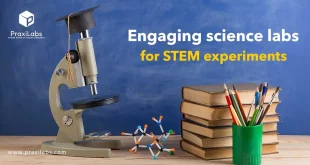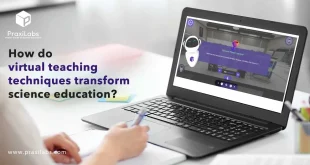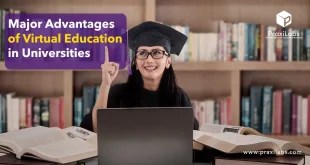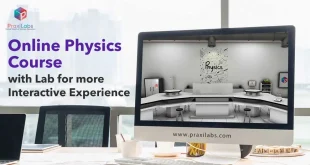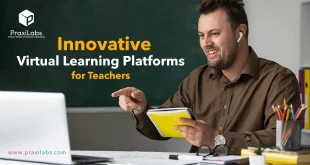Last Updated on December 23, 2025 by Muhamed Elmesery STEM education thrives when students don’t just learn science—they experience it. Engaging science labs transform abstract theories into hands-on exploration, allowing learners to experiment, observe, and analyze like real scientists. Whether through physical or virtual labs, interactive STEM experiments spark curiosity, strengthen critical thinking, and deepen conceptual understanding, making science more …
Read More »E-learning
How do Virtual Teaching Techniques Transform Science Education?
Last Updated on December 18, 2025 by Muhamed Elmesery Remember those days hunched over a microscope, or carefully mixing chemicals in a beaker? Science education has always been deeply rooted in hands-on experience. But what happens when the classroom moves online? Far from being a limitation, the rise of virtual teaching techniques has unleashed a powerful transformation in how we …
Read More »Major Advantages of Virtual Education in Universities
Last Updated on December 11, 2025 by Muhamed Elmesery The landscape of higher education has undergone a profound transformation, and at the heart of this shift is virtual education. Far from being a temporary fix, online learning is proving to be a powerful, sustainable model that delivers significant benefits to university students worldwide. Gone are the days when a quality …
Read More »Online Physics Course with Lab for more Interactive Experience
Last Updated on December 8, 2025 by Muhamed Elmesery In a world where science education is rapidly evolving, online physics course with labs is reshaping how students learn, experiment, and truly experience physics. Instead of passively watching demonstrations, learners can now interact with real-world simulations, test hypotheses, and visualize complex concepts—all from the comfort of their screens. This powerful blend …
Read More »Innovative Virtual Learning Platforms for Teachers
Last Updated on November 30, 2025 by Muhamed Elmesery In today’s fast-evolving classrooms, teachers need more than just digital tools—they need smart, innovative virtual learning platforms for teachers that simplify teaching, spark student engagement, and bring lessons to life. From interactive content and real-time collaboration to AI-powered assessment and personalized learning paths, these platforms are reshaping how educators teach and …
Read More » PraxiLabs A virtual world of science
PraxiLabs A virtual world of science

